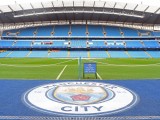In an unusual turn of events, Premier League rivals Manchester United and Manchester City are set to join forces in opposition to the competition's planned restrictions on spending. The proposed changes have been met with resistance from several quarters, including the Professional Footballers' Association (PFA), who argue that it would put clubs at a disadvantage in Europe.
The Premier League is proposing a four-year trial that would restrict club spending based on commercial revenue, prize money, transfer fees, wages and agent revenue. According to reports, the top club in the division would be limited to spending five times as much as the bottom-placed club based on their income.
Proponents of these changes believe they will make the league more balanced and competitive by preventing clubs like City and Chelsea from creating a quality gap on the pitch through excessive spending in the transfer market.
Opposition from clubs and PFA
However, this proposal has not been well received by all parties involved. Both Man Utd and Man City have voiced their opposition against these plans. They are joined by PFA who fear that such restrictions could deter players from joining them due to limits on potential earnings.
Moreover, there is concern that approval of this scheme within Premier League might encourage English Football League (EFL) to introduce similar financial control measures.
Manchester United shareholder Sir Jim Ratcliffe spoke out last year against these proposed caps calling them "absurd". His stance reflects concerns about how such limitations could impact competitiveness both domestically and internationally for English clubs.
Approval requirements for the scheme
For this scheme to be approved or rejected outrightly requires significant support either way among division's clubs. To get approved it needs backing from two-thirds of division's clubs which equates 14 votes out of 20 total teams participating in Premier league season. On the other hand, to prevent these restrictions from being put in place, Manchester clubs would need the support of five other clubs.
While the proposed spending cap aims to level the playing field and promote competitiveness within Premier League, it has sparked a debate among stakeholders. The outcome will depend on whether more clubs align with Manchester United and City's opposition or side with those advocating for financial restraint.












